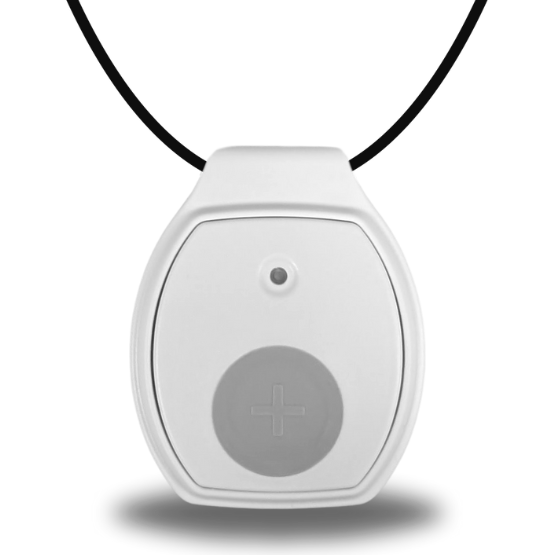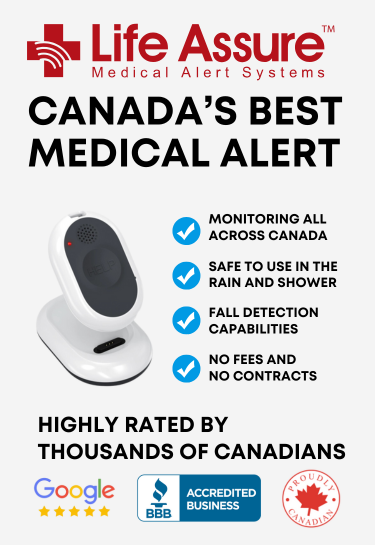How Regular Health Check-Ups Can Help Manage Seniors Heart Issues
Seniors often face heart problems. Regular check-ups can catch these issues early. Early detection helps manage and treat heart problems better.
This can improve quality of life and reduce complications. In this article, we discuss seniors heart issues and how regular check-ups benefit them.
Life Assure Product Quiz
Find The Perfect Medical Alert Device
Take our 30 second quiz and discover which Life Assure medical alert device is the right fit for you or a loved one.
Life Assure Product Quiz
Find The Perfect Medical Alert Device
Take our 30 second quiz and discover which Life Assure medical alert device is the right fit for you or a loved one.
What Heart Issues Do Seniors Often Face?
As people age, they often develop health issues. Heart conditions are common among them. This section will cover common heart conditions that seniors face.
We will also briefly talk about how they impact your health. Understanding these conditions is key to early detection and proper management.
High Blood Pressure
Many seniors have high blood pressure. It forces the heart to work harder. Stress can cause heart attacks or strokes. Regular check-ups can however be very beneficial. Medication, and lifestyle changes are also quite important. Early detection can prevent serious seniors heart issues.
Coronary Artery Disease
What happens in CAD is that arteries start to narrow. This restricts blood flow to the heart. As a result, the patient may feel chest pain during activity. In severe cases, it can lead to heart attacks. Seniors may need medication or procedures to improve blood flow and avoid heart damage.
Heart Failure
When heart failure is diagnosed, the heart struggles to pump blood. Common symptoms include fatigue and leg swelling. The person will also have trouble breathing. Daily tasks can become difficult. Regular care and medication can manage heart failure.
Arrhythmias
Arrhythmias are irregular heartbeats. They can cause dizziness or fainting. Older adults often have them. Regular check-ups help manage arrhythmias. Some are mild, but others need treatment.
Heart Valve Disease
Heart valve disease disrupts blood flow in the heart. It can cause shortness of breath and swelling. Treatment may involve medication or valve repair. Regular check-ups help manage the condition effectively.
Atrial Fibrillation
This is a condition where the person has an irregular heartbeat. Moreover, the heart rate will also be very fast. It raises stroke risk. Regular check-ups can control it.
Benefits of Regular Check-Ups For Seniors With Heart Issues
Regular check-ups are key for senior heart health. They help detect problems early. Doctors can adjust medications and give lifestyle advice. These steps can significantly improve heart health.
We will also briefly talk about how they impact your health. Understanding these conditions is key to early detection and proper management.
Early Detection of Heart Conditions
Regular check-ups help catch heart problems early. Many heart issues show no symptoms in the beginning. Early detection helps doctors act before problems grow.
For example, they can manage high blood pressure with lifestyle changes and medicine if caught early. This lowers the chance of serious issues like heart attacks.
Monitoring of Medications
Many seniors take medications for heart issues. Regular check-ups help doctors ensure the medications are working.
Some medicines can cause side effects or stop being effective over time. During check-ups, doctors can adjust doses or try new treatments. This helps manage the condition better and avoids complications.
Managing Risk Factors
Check-ups help track key risk factors: cholesterol and blood sugar. High cholesterol can block arteries. High blood sugar can harm blood vessels. Regular monitoring helps manage these risks effectively.
Lifestyle Advice
Doctors offer advice on diet, exercise, and lifestyle changes. Seniors might need to adjust their routines. They may need to cut back on salt or add light exercise. These changes can improve heart health and lower risks.
Tracking Progress
Regular check-ups help track the progress of treatment plans. Heart issues require regular monitoring. Seniors might need to adjust their treatment plans as they age. Tracking the condition helps doctors make informed decisions. They can update treatments as needed.
Reducing Hospital Visits
Regular check-ups help seniors avoid hospital stays. By managing heart conditions early, doctors can prevent issues from worsening. This reduces the need for emergency care. Also, you will probably be saving both your time and money.
Improved Quality of Life
Regular check-ups improve seniors' quality of life. Early detection helps manage heart issues. Treatment keeps seniors independent. Managing symptoms lets them stay active. They can enjoy daily activities better.
Peace of Mind
Regular check-ups will go a long way to reassure you. They confirm that health is on track. This monitoring can ease anxiety for seniors. It also helps families feel secure. This support aids both emotional and physical well-being.
Preventing Stroke
Check-ups lower stroke risk by managing high blood pressure. Doctors can prescribe medicine to help with this. They will also suggest lifestyle changes to control blood pressure. These steps help prevent strokes before they occur.
Personalized Care
Each senior has unique heart health needs. Check-ups let doctors address these needs directly. They adjust treatments to fit each patient’s condition. Regular visits help doctors make necessary changes. This ensures the right care at the right time.
Better Symptom Management
Seniors with heart conditions may feel tired or short of breath. Chest pain can also signal problems. Regular check-ups help manage these issues. Doctors can suggest treatments or lifestyle changes to ease discomfort. Addressing symptoms early helps seniors stay active and feel better.
Keeping Heart Rate in Check
Irregular heartbeats can be dangerous for seniors. In case its left untreated, it can often cause fainting. Some seniors also face strokes. Regular check-ups help track heart rhythm. Doctors can find issues early and adjust treatments. This helps prevent serious problems.
Preventing Blood Clots
Clots are a leading cause of heart attacks. Regular check-ups can spot them early. Doctors may prescribe blood thinners to lower the risk. Early action helps prevent serious seniors heart issues from clots.
Detecting Silent Heart Attacks
Most heart attacks really dont have such obvious symptoms. Some go unnoticed but still cause damage to the heart. Regular check-ups can catch these silent heart attacks.
Early detection allows doctors to start treatments that prevent further harm. This reduces the chance of future heart problems.
Conclusion
Seniors face various heart issues, but regular check-ups can help manage them. For instance, these visits can detect problems early.
They will also help to monitor medications, and improve overall health. Seniors can benefit greatly from consistent healthcare. This will reduce complications and improve their quality of life.











 Get Help With The Push Of A Button
Get Help With The Push Of A Button















